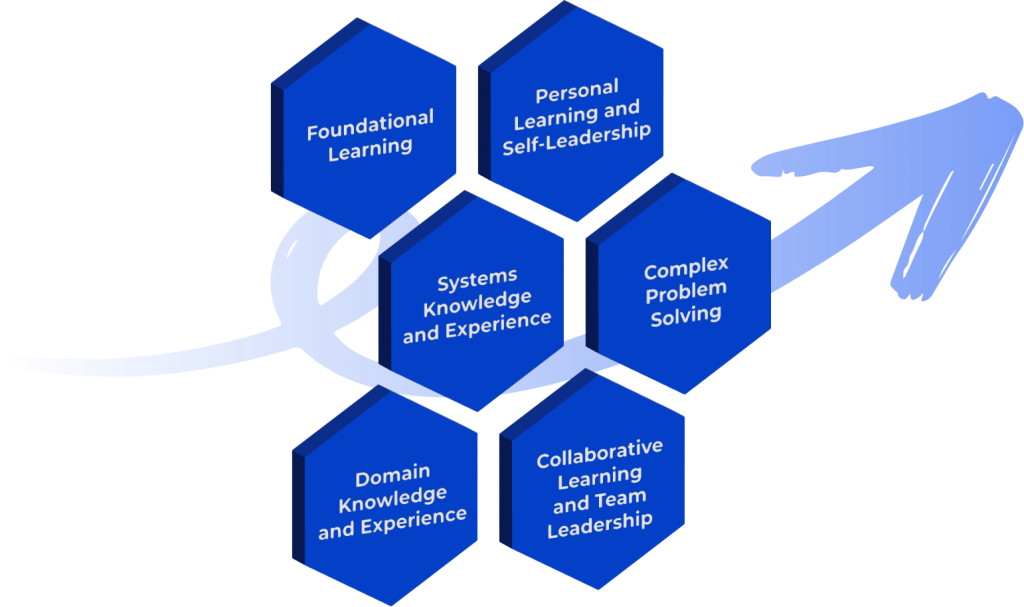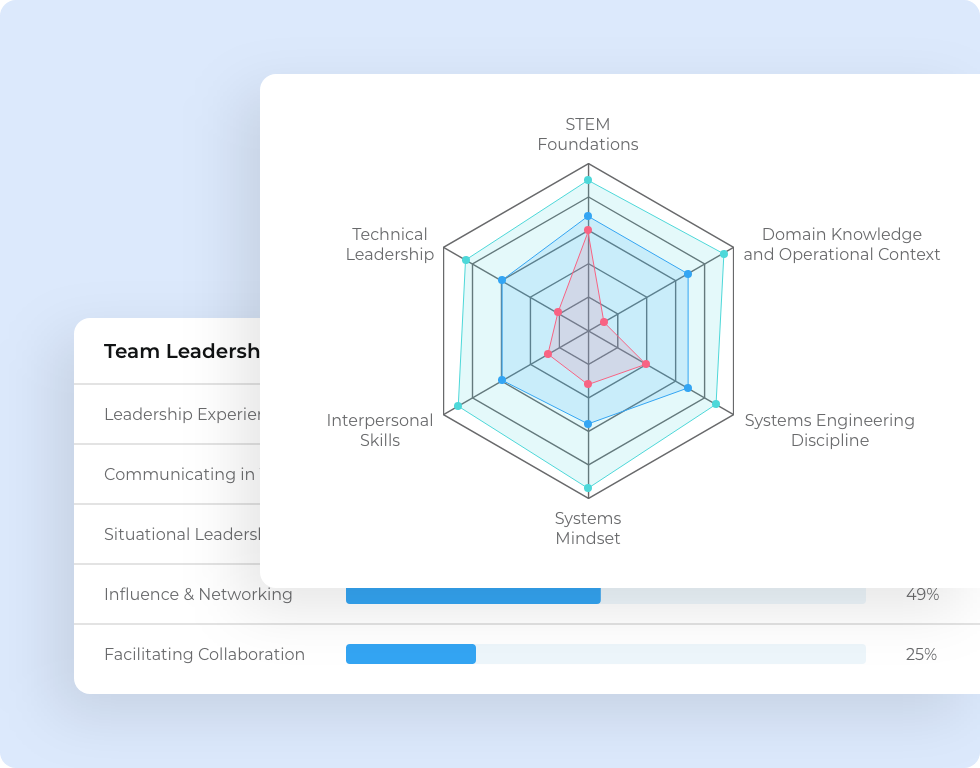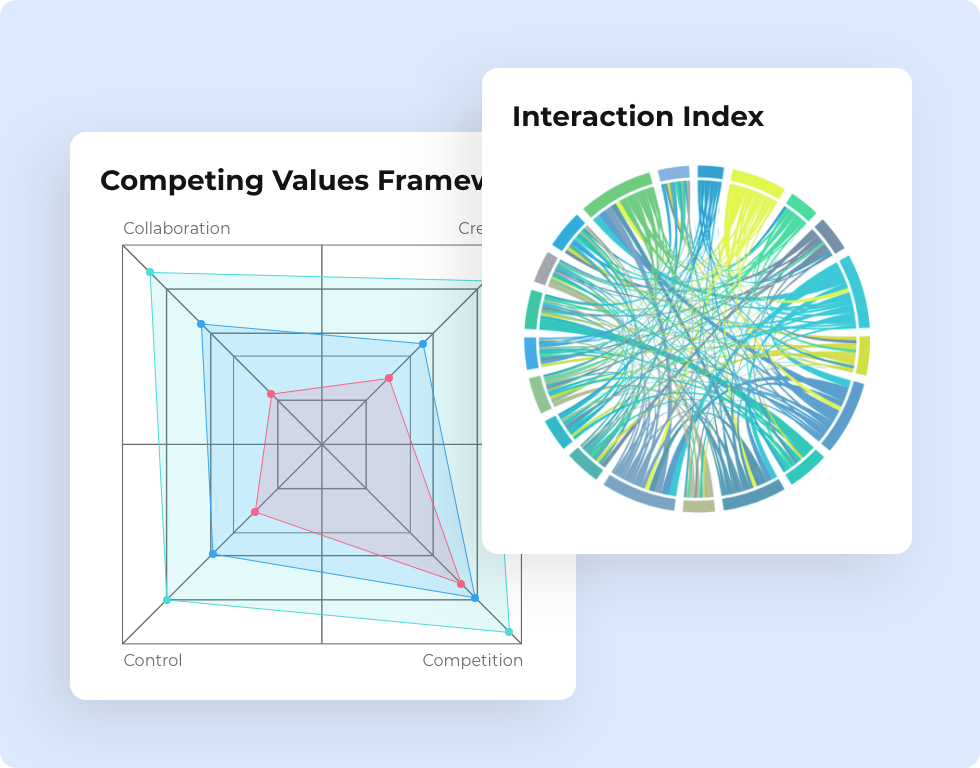Do you have a self-aware organization? Do you know if your organization is prepared to meet the challenges of an increasingly complex, changing world?

Framework for Individual and Organizational Effectiveness

HELIX is a workforce proficiency framework for individual and organizational effectiveness, based on a study of complex problem solving in systems engineering.
WHAT IS HELIX?
Helix is a set of tools to help understand individual and organizational capabilities. There are two flavors of Helix:
HelixSE contains a proficiency model and career tracking toolset focused on individual total person development in the systems discipline. HelixSE also contains an organizational assessment tool focused on generative culture, organizational self-awareness, and the forces that create individual effectiveness. Evolved from a long-term study of the proficiencies of systems engineers facilitated by the Systems Engineering Research Center (SERC) at Stevens Institute of Technology. It represents the most comprehensive study of engineering effectiveness ever undertaken.
HelixEMP is built from insights on systems capabilities but focuses on broad Employability Skills. It enables individuals to understand their capabilities in terms of self-leadership and learning, team leadership and collaboration, and complex problem-solving as well as their foundational employability skills. Employability skills are applicable across a diverse set of disciplines and domains.

WHY HELIX?

A Changing Landscape
The landscape of engineered systems is changing. The pace of technology innovation continues to speed up. Data is increasingly open and available for analysis. Everything is becoming interconnected, and complex global systems of systems abound. Automation and user customization make systems more efficient, configurable, and adaptive. Challenges abound – sustainability and resource use, balancing openness versus security and privacy, high assurance and safety, ethics, and scale. The number and complexity of relationships in modern systems force engineering teams to deal with issues well beyond their discipline*. Systems Engineering and Systems Management put a man on the moon and have traditionally been the “home” for management of complex inter-disciplinary challenges.

Complex Problem Solving
Employers increasingly favor employees with problem solving, systems and critical thinking, and team leadership proficiencies that emphasize relationships between systems and people, interactions between product and user and agility in delivery of products and services. The human capability underlying these is Systems Engineering. The HELIX project interviewed almost 500 systems engineers and studied over 30 complex organizations over a period of eight years to derive a model of the complex problem solver. In the process we also discovered the forces an organization needs to apply to create these people.

Organizational Self-awareness
HELIX provides a set of easy to use tools for individuals and their peers/managers to assess and discuss their complex problem solving proficiencies over time and across their career development. HELIX provides a set of additional tools for organizations to assess whether or not they have a culture and the forces to produce these individuals and to apply the proficiencies broadly. We call this organizational self-awareness.
WHAT MAKES HELIX UNIQUE?
Helix is not the first project that looked at systems engineering effectiveness, but it is the first of it’s kind to focus on gathering empirical data around the systems engineering effectiveness of individuals.
Over the 8 years of the research task, Helix looked at this problem in a number of ways:
In-depth Interviews
Interviews were conducted with systems engineers and their leadership, managers, and peers. Transcript data from these interviews totals over 6,000 pages. Qualitative analysis and data mining techniques were used to make sense of the this wealth of information and provided crucial insights to Helix.
Surveys
Over 200 people participated in the Helix surveys, providing a rich dataset on the factors that impact systems engineers and organizations that try to do systems engineering. Insights on culture, governance, structure, and teaming for systems engineering effectiveness were pulled from the survey data and are reflected in Helix.
Pilots
Helix has worked with a number of organizations to pilot programs that utilize the Helix findings to improve effectiveness. Insights from these pilots were fed back into our models and approaches. We are the only group in the world with this level of rigorous data to back up our recommendations for systems engineering.
Participant Organizations
0
Countries
0
Domains
0
Participants Interviewed
+
MEET THE TEAM

Dr. Nicole Hutchison
Dr. Nicole Hutchison is a research engineer with the SERC. She has supported the Helix project since its inception and currently serves as its Principle Investigator. Previously, she supported the Body of Knowledge and Curriculum to Advance Systems Engineering (BKCASE) project (2009-2014). Before coming to Stevens, Dr. Hutchison worked for Analytic Services Inc. as a contractor working primarily on public health, biodefense, and full-scale exercise projects for the US Departments of Defense, Homeland Security, and Health and Human Services. Dr. Hutchison holds an MS in Biohazardous Threat Agents and Emerging Infectious Disease from Georgetown and a PhD in systems engineering from Stevens.

Mr. Tom McDermott
Tom McDermott is a leader, educator, and innovator in multiple technology fields. He currently serves as Deputy Director of the Systems Engineering Research Center (SERC) at Stevens Institute of Technology in Hoboken, NJ, as well as a consultant specializing in strategic planning for uncertain environments. He studies systems engineering, systems thinking, organizational dynamics, and the nature of complex human socio-technical systems. He teaches system architecture concepts, systems thinking and decision making, and the composite skills required at the intersection of leadership and engineering. He has over 30 years of background and experience in technical and management disciplines, including over 15 years at the Georgia Institute of Technology and 18 years with Lockheed Martin.
CONTACT THE HELIX TEAM
The formalized research stage of Helix has ended. Today, we are working with individuals and organizations to help them utilize the tools and insights from Helix to improve their self-awareness and effectiveness.
If you have additional questions, please contact the Helix team.


